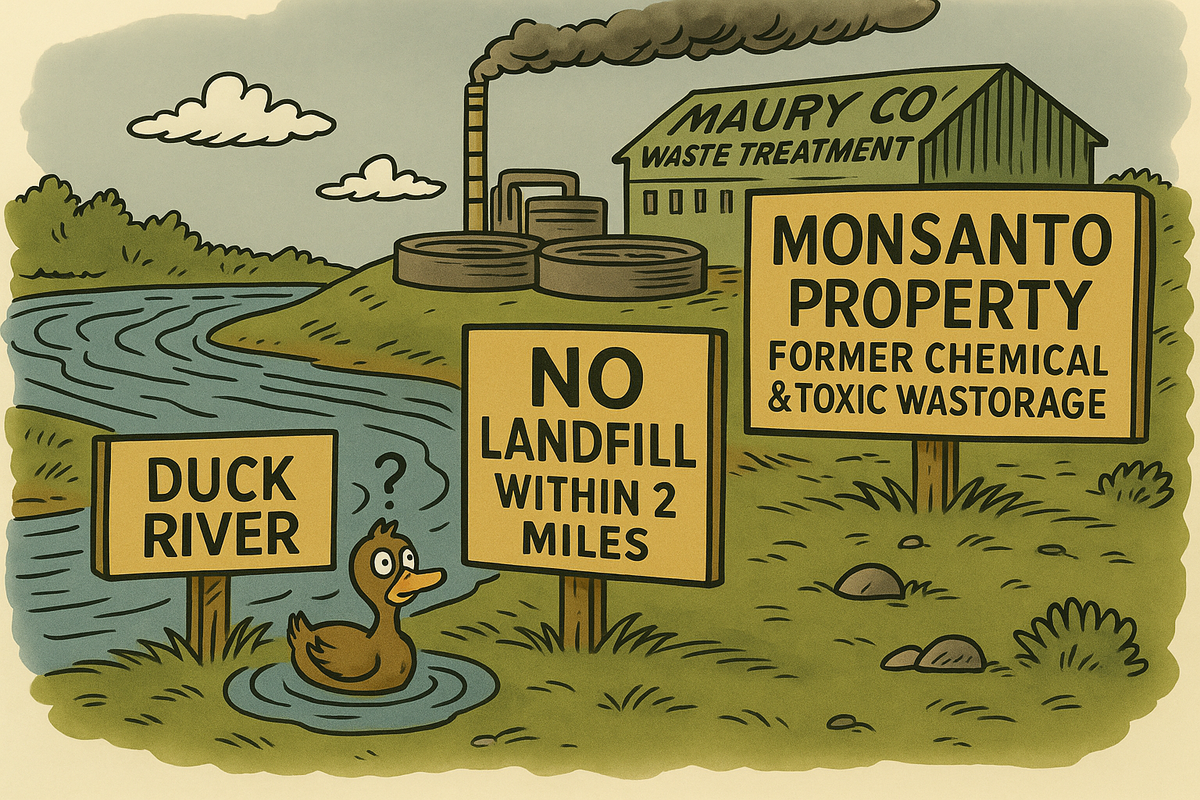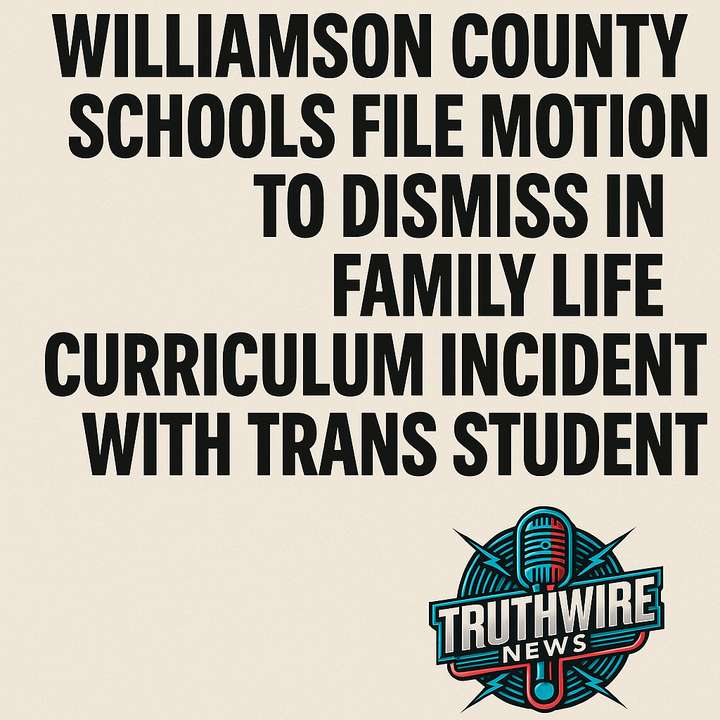A lawsuit over Maury County’s Star Hill property argues that new laws and setbacks wiped out all viable industrial uses, raising core questions about whether Tennessee lawmakers crossed constitutional lines by retroactively targeting a lawful land use.
The dispute over the Star Hill property in Maury County has evolved into a broader debate about the limits of government authority and the constitutional protections afforded to private landowners in Tennessee. While public discussions have often focused on environmental concerns, local politics, or the industrial history of the site, the core question raised by the lawsuit filed against the state is far more fundamental: can government retroactively legislate away a lawful property use without crossing the constitutional line into an uncompensated taking?
Before any new restrictions were introduced, the owners of the Star Hill property applied for — and in at least one case received — permits from the Tennessee Department of Environment and Conservation for waste-tire processing, material recovery, and energy-recovery facilities. These applications advanced under the same environmental framework designed to prevent harmful uses near waterways such as the Duck River. If the proposed activities were categorically incompatible with environmental protections, the permitting process would not have progressed. The fact that a permit was issued, then later rescinded following political pressure, is central to the plaintiffs’ argument: that the use was lawful under existing regulations, and it was only through later legislative and regulatory action that it became prohibited.
The property’s long industrial history further narrows the field of realistic land uses. Once home to heavy industrial operations and hazardous material storage, the site is not suitable for residential development and is impractical for most commercial uses. The range of economically viable options that remain are largely industrial — exactly the category of uses that the owners sought through TDEC’s established permitting channels. When new laws and setbacks eliminate all such industrial uses, the practical effect is to strip the land of value. It is this deprivation of economically meaningful use that forms the constitutional backbone of the plaintiffs’ inverse-condemnation claim under both federal and state law.
In response to questions about the legislative process, TruthWire reached out to State Rep. Scott Cepicky, who offered his perspective on the history of restrictions affecting the property. Cepicky said that certain county land-use overlays were already in place as far back as 2015 or 2016, before the current owners purchased the property. He also stated that a TDEC transfer document conveyed “no expectation of any expansion” when the land changed hands, though he noted he does not have access to the documents at present due to ongoing litigation in which he is listed as a party.
Cepicky argued that the property, zoned for heavy industrial use, could host multiple alternative industrial operations and that the state had an obligation to protect the Duck River and its biodiversity. As he put it, “The overlay from the county was already in place when they bought the property, and the transfer from TDEC conveyed no expectation of expansion. We have an obligation to protect one of the most biodiverse rivers in the world.”
His remarks reflect one perspective in a complex debate, but they do not eliminate the constitutional questions raised in the lawsuit. Even if certain restrictions existed, the legal question is whether they were sufficient to prohibit the uses proposed — and if not, whether subsequent legislative action was tailored so narrowly that it effectively targeted a single property. The scenic-river designation at the center of the dispute was drawn in a way that places new restrictions directly adjacent to the Star Hill property while skipping upstream segments. For plaintiffs, this tailoring is not incidental but intentional, transforming general legislation into targeted rulemaking aimed at preventing a specific land use after the owners had already entered the legal permitting process.
This is where the dispute moves out of the realm of policy preference and into constitutional territory. Government can regulate land use, and it can restrict harmful operations, but it may not eliminate all economically viable uses of a property without compensating the owner. Courts have repeatedly held that a “taking” need not involve physical seizure; a regulation that destroys the property’s practical utility can amount to the same thing. Even if some industrial uses remain technically permissible, the constitutional question hinges on whether those uses are economically realistic given the site’s contamination and industrial legacy. If they are not, then the elimination of the only viable uses may legally constitute a taking regardless of the state’s intent.
The controversy is further complicated by competing narratives about environmental stewardship and economic development. Cepicky argues that the area is well-suited for heavy-water-use industries and that the state has funded restoration efforts that could support alternative redevelopment. Plaintiffs counter that such uses are not feasible, and that the state and county instead pursued legislative strategies that foreclose practical industrial development altogether. The significant question is not whether environmental protection is a legitimate goal — it unquestionably is — but whether the laws enacted were broad environmental measures or narrowly drawn restraints whose practical effect was to make the Star Hill property unusable.
Regardless of which narrative one finds more persuasive, the lawsuit forces a fundamental examination of government power. If the state can retroactively impose setbacks, adjust scenic-river boundaries, and create new prohibitions that uniquely affect a single landowner after permit applications are underway, then any property owner in Tennessee could face a similar fate. The outcome will not only determine the future of a single industrial parcel in Maury County, but also shape the boundaries of legislative authority and constitutional protections for property owners across the state.
If you support what we do, please consider donating a gift in order to sustain free, independent, and TRULY CONSERVATIVE media that is focused on Middle Tennessee and BEYOND!




Comments ()